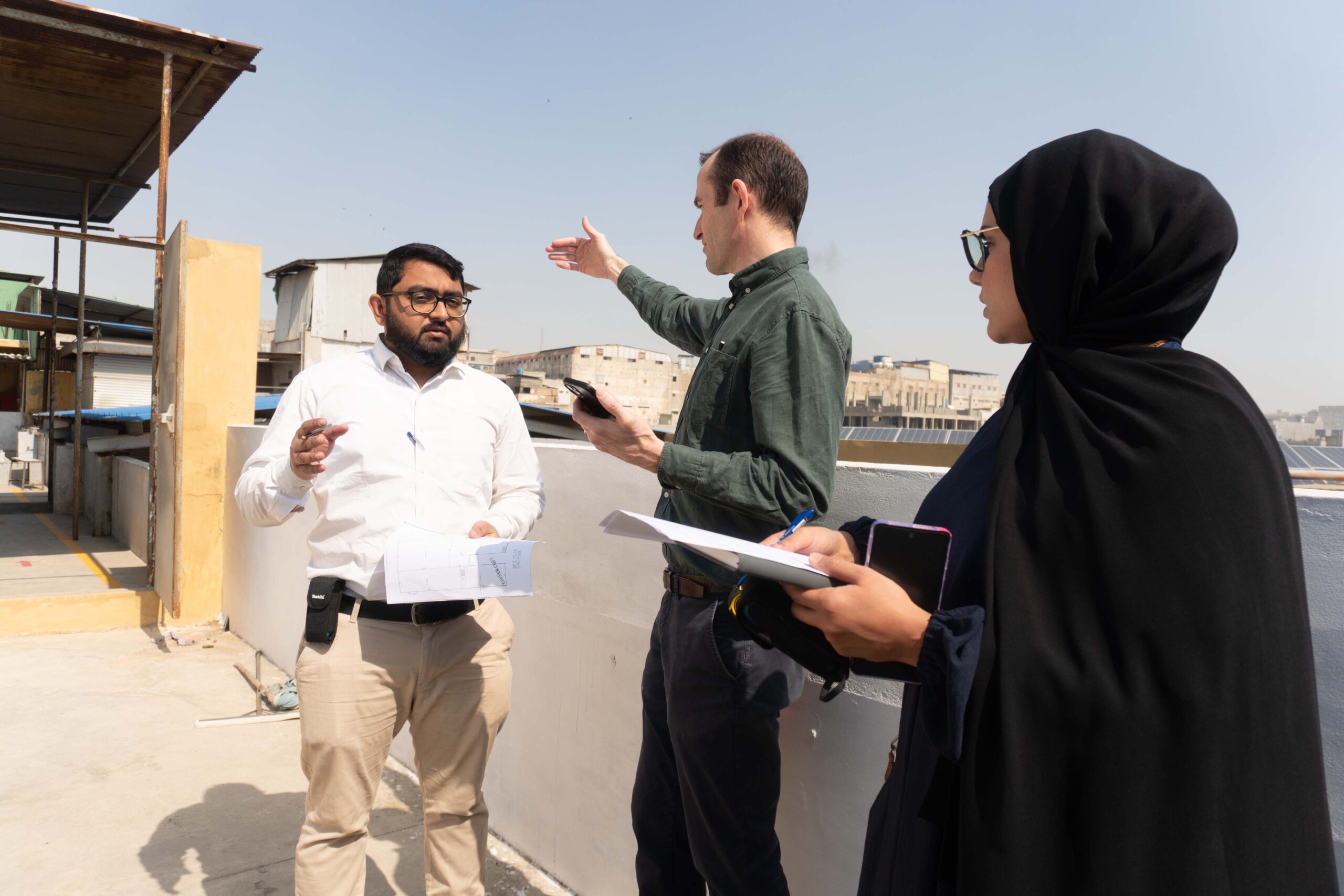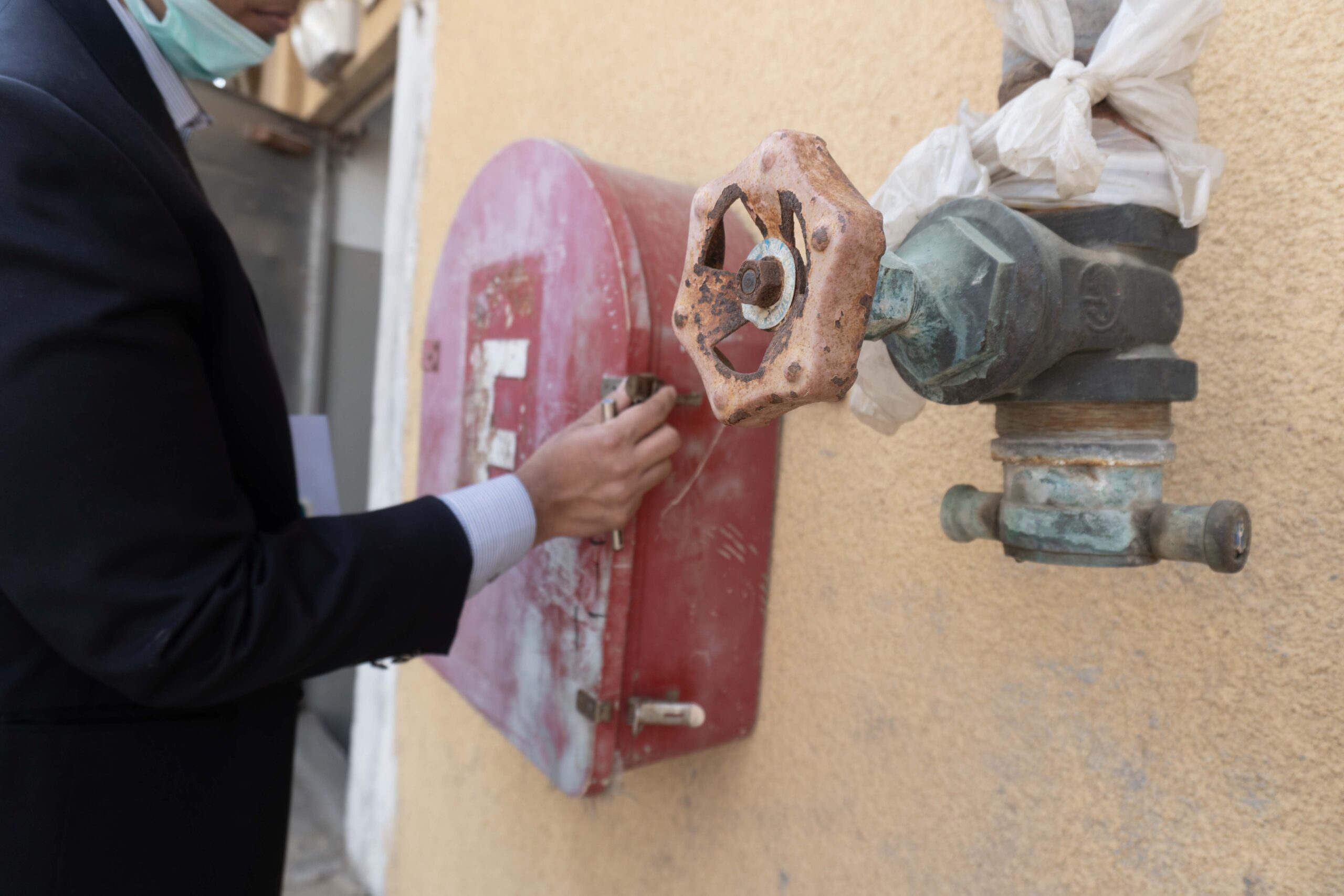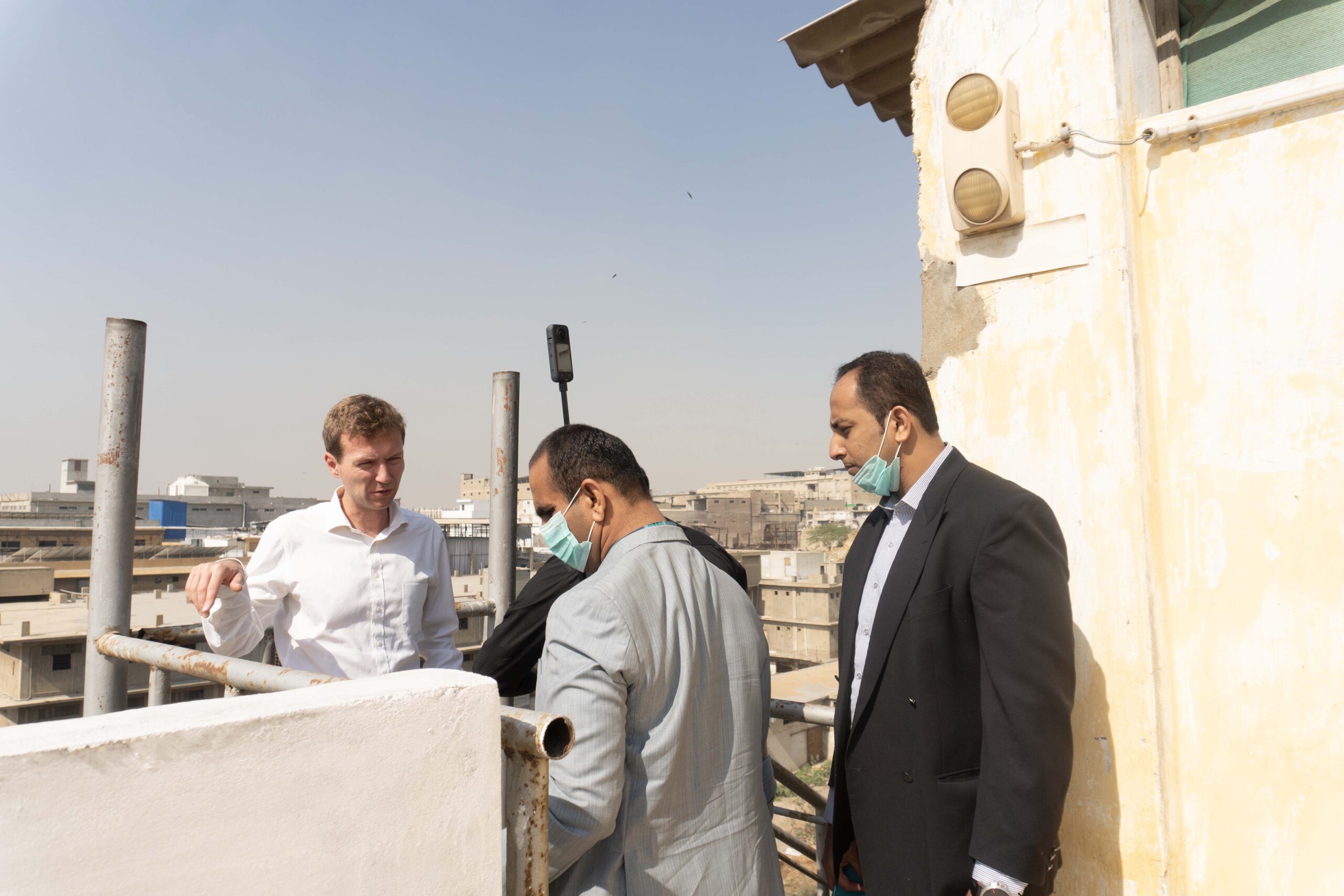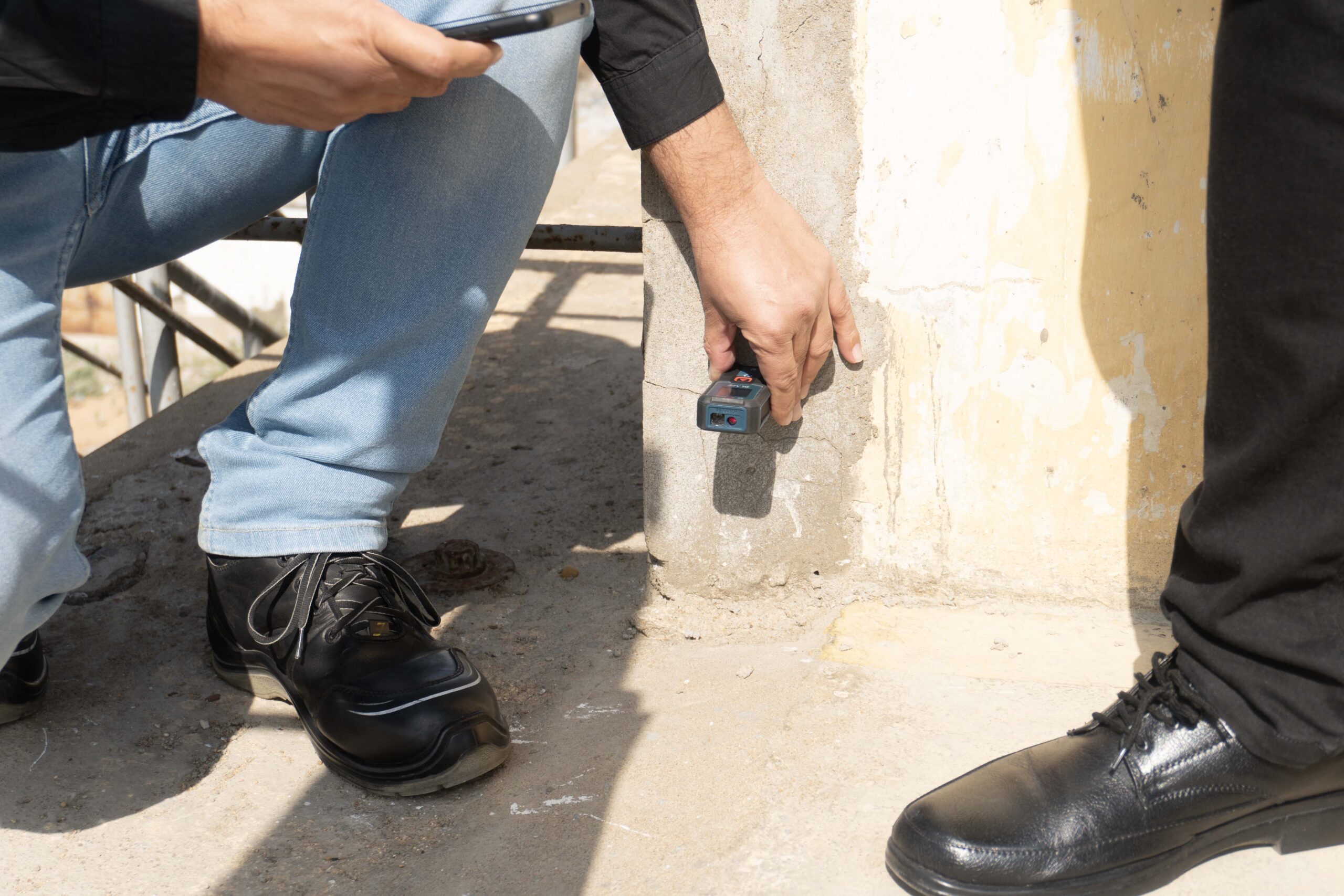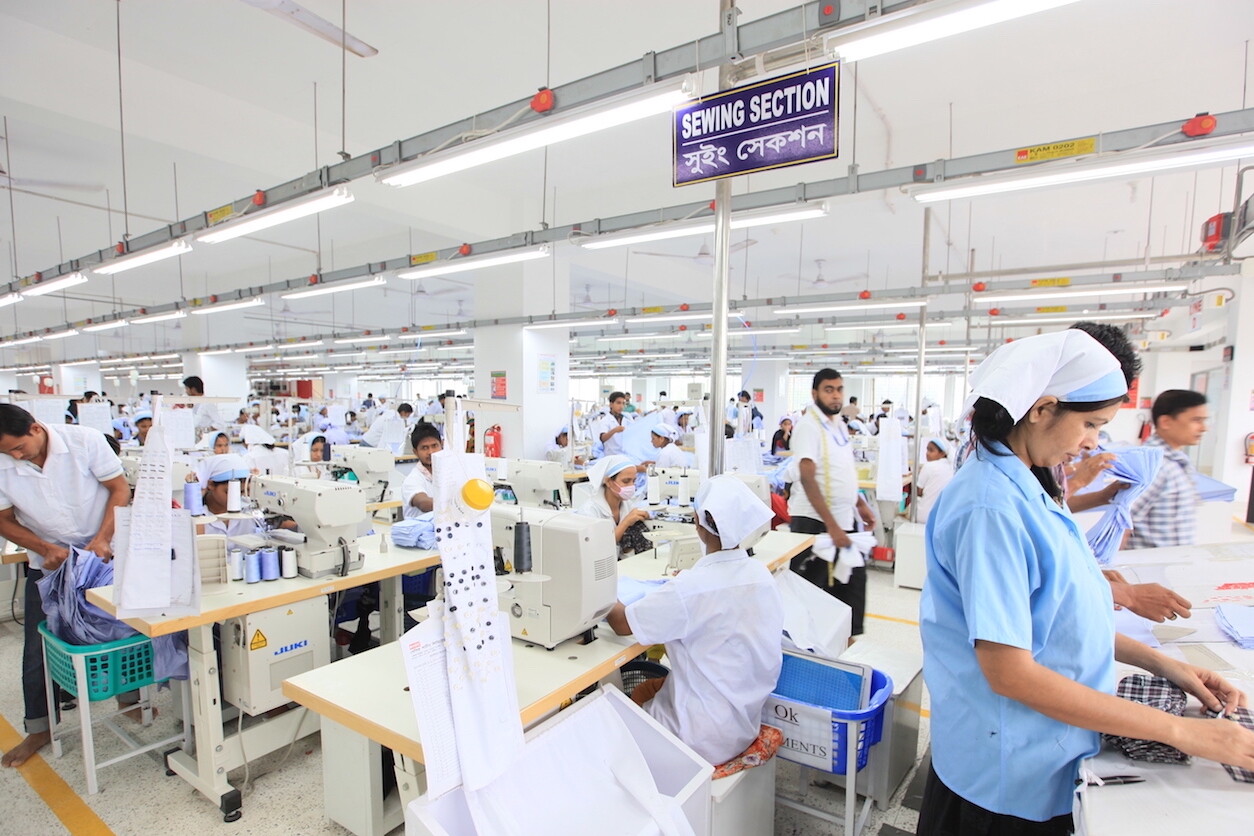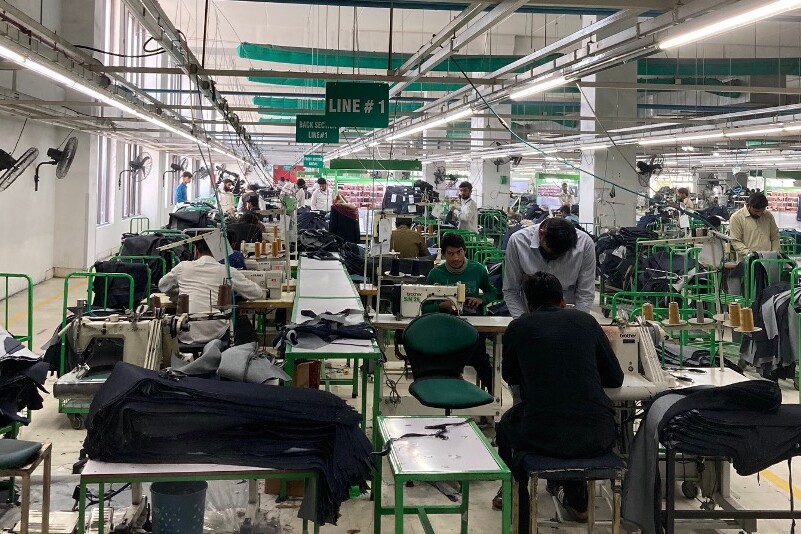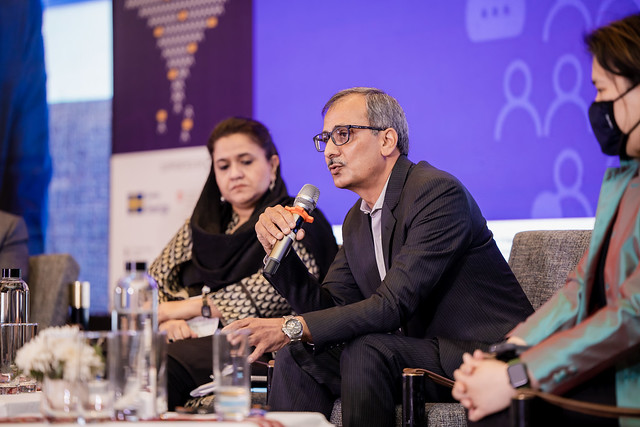Start of capacity building program for Pakistan Accord engineers
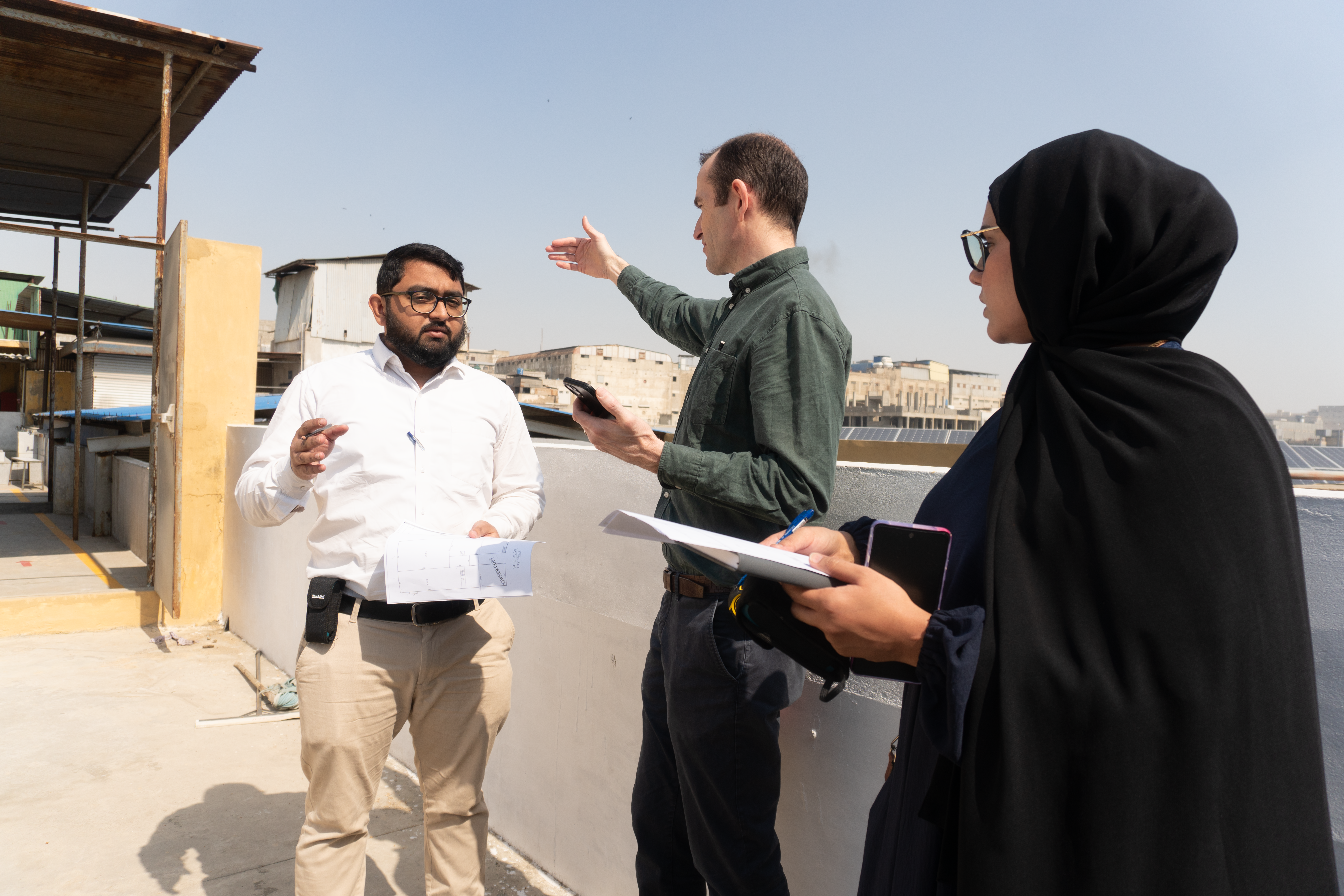
Marking a milestone in the rollout of the International Accord’s country program in Pakistan, newly hired engineers are undergoing training. The capacity-building program aims to equip engineers with the technical knowledge and practical skills necessary to effectively conduct factory inspections and produce reports that identify remediation required under the Pakistan Accord.
The program is currently underway in Karachi, Faisalabad and Lahore, Pakistan, and spans 9 weeks (with a two week break over Eid). In this inaugural batch, 14 engineers (including 5 fire engineers, 5 electrical engineers, 4 structural engineers) are undergoing training facilitated by engineering consultants, alongside George Faller (Chief Safety Officer, Pakistan Accord) and Colm Quinn (Head of Operations, International Accord).
The Capacity Building Program
The capacity building program comprises two phases focusing on classroom and on-the-job training. The initial three days emphasise introducing engineers to key Accord principles, the Pakistan Accord Building Standard, and essential key safety inspections features. Additionally, classroom sessions familiarise engineers with key safety hazards to look out for during factory assessments, and capturing this key information in reports used to develop factory Corrective Action Plans (CAPs).
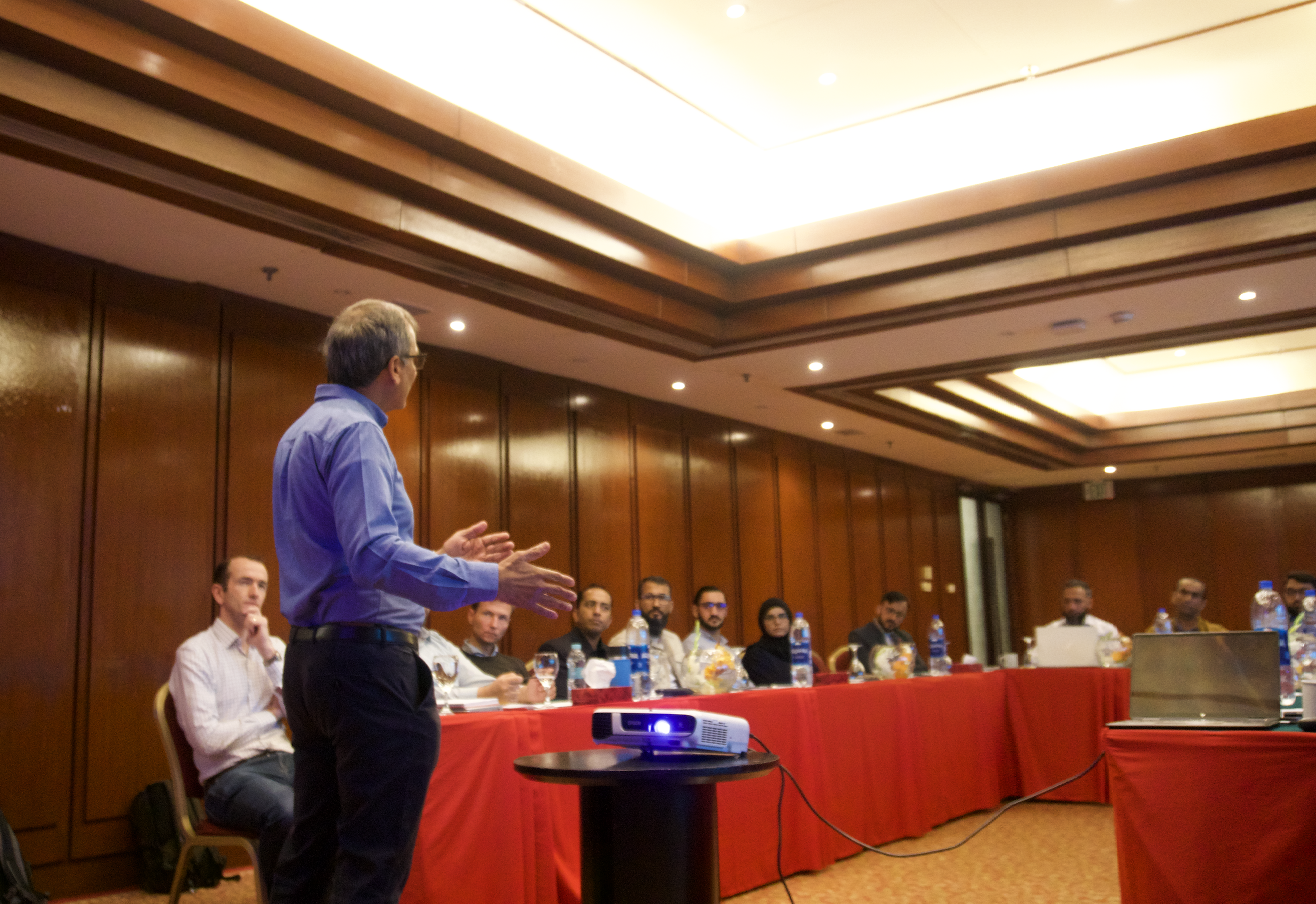
Following classroom sessions, engineers are currently undergoing a nine-week on-site building inspection and reporting training.
Factory Inspections
As part of the on-site training, trainee engineers joined the fire, electrical, and structural safety inspections at least 10 factories covered under the Pakistan Accord. Based on the complexity of the factories, these visits typically lasted one day.
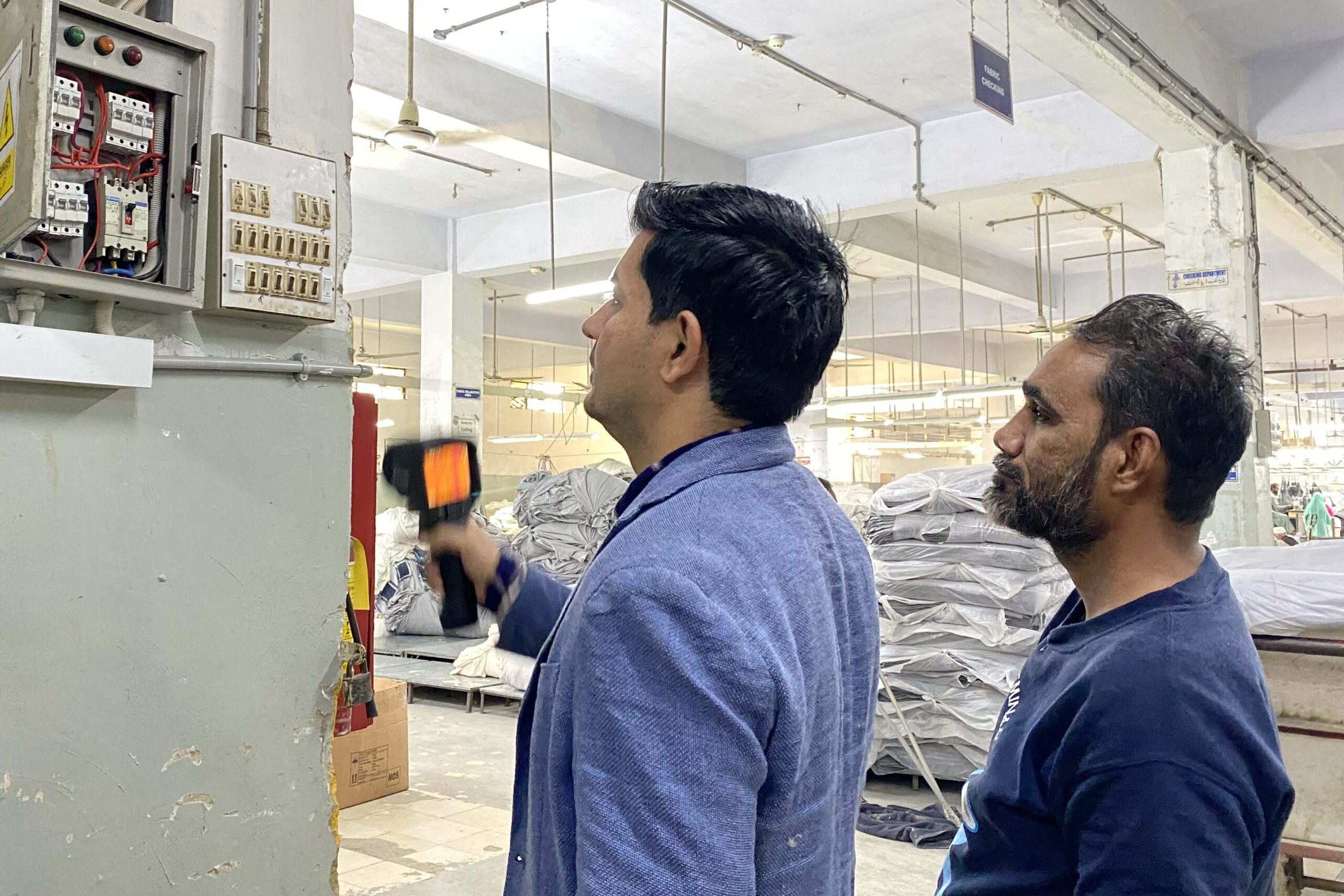
The inspection day started with an opening meeting with factory management, followed by a walk around the building exterior and through all interior rooms and spaces. The team also conducted non-destructive testing as required, for example, measuring concrete hardness and thermographic scanning to identify electrical hotspots.
These initial inspections are part of the Pakistan Accord’s inspections and remediation program that began in November 2023. This recent round of inspections brings the number of factories covered under the Pakistan Accord to receive initial inspections to over 25 factories.
Resources:
Related updates
May 29, 2023
200 global brands and retailers have now signed the International Accord for Health and Safety in the Textile and Garment Industry since it took effect on September 1, 2021.
May 15, 2023
Ten years after the first Accord was signed, the Accord Secretariat reflects on the progress in worker safety in the past decade and our vision for the future.
May 3, 2023
A total of 54 brands and retailers have thus far signed the Pakistan Accord for Health and Safety in the Textile and Garment Industry, with more expected to follow in the coming weeks.
April 24, 2023
The Accord commemorates 10 years since the Rana Plaza collapse by remembering those who perished, those who were injured, and those who continue living with the impacts of one of the worst workplace disasters in modern history.
March 22, 2023
The International Accord participated in the 4th UN South Asia Forum on Business and Human Rights organized by UNDP Business and Human Rights Asia from 20-22 March 2023 in Kathmandu, Nepal.
February 23, 2023
35 signatories to the International Accord have signed the Pakistan Accord to ensure worker safety in the country’s textile and garment industry.

